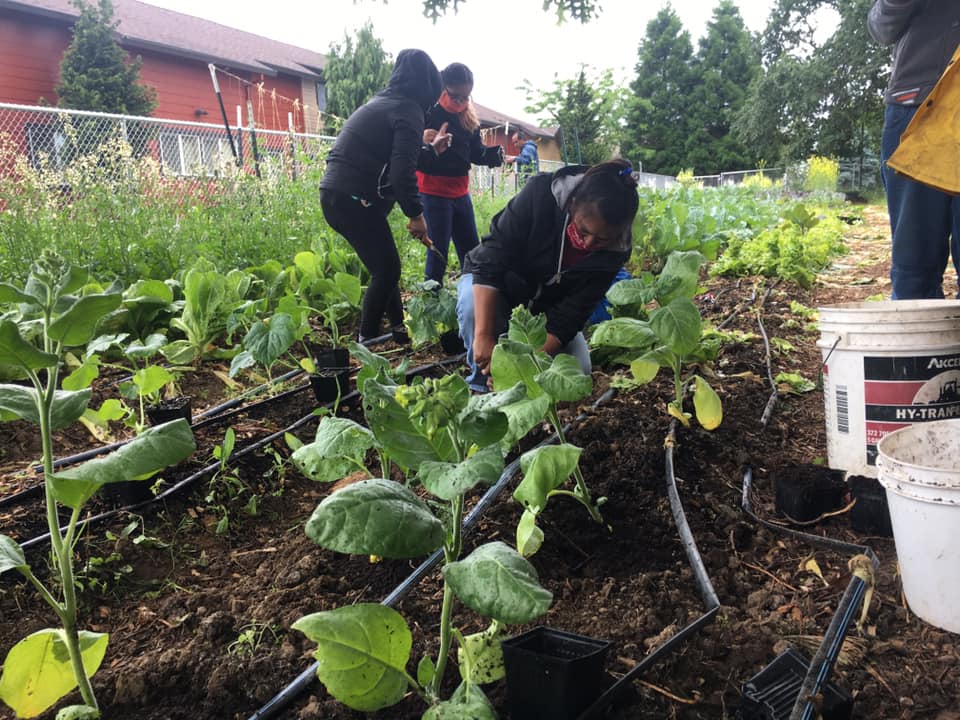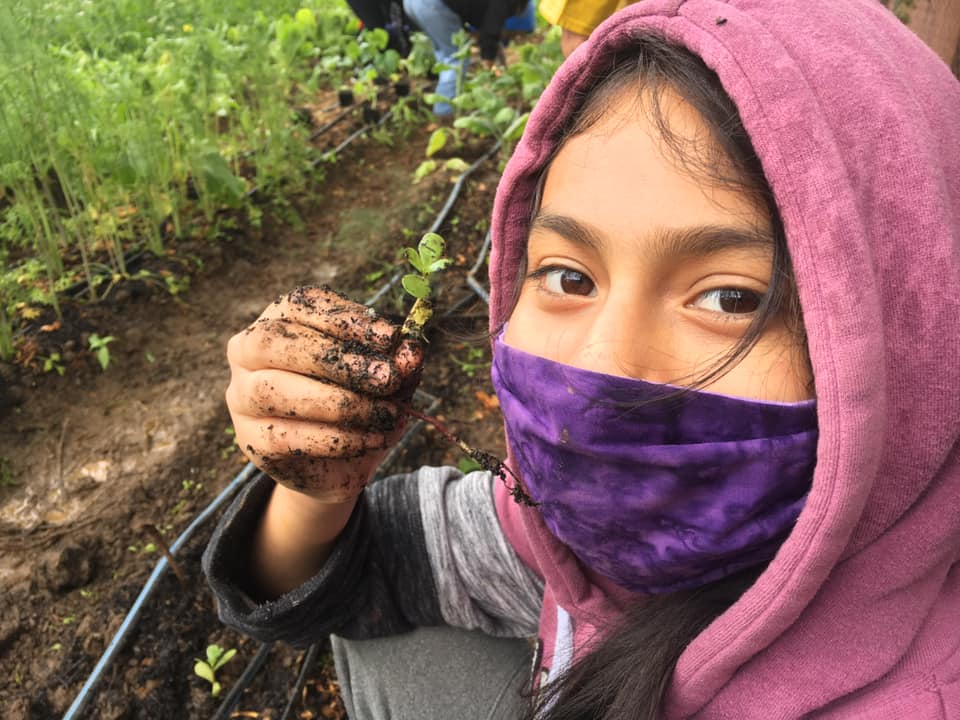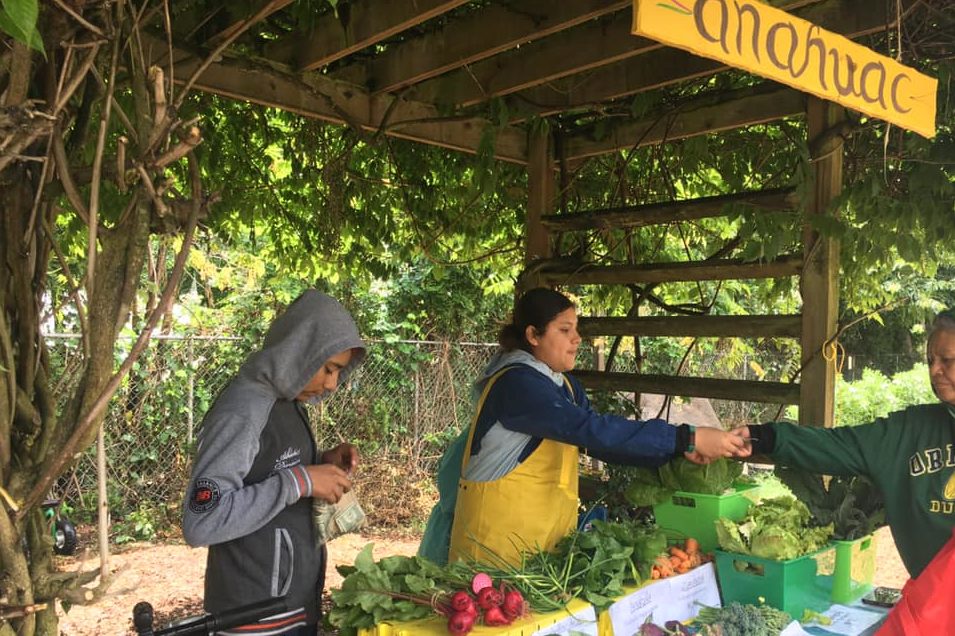
The Anahuac Project, formed by Capaces Leadership Insitute and supported by FHDC and Evolve with land, resources, volunteers, and residents is providing much-needed healing opportunities through a reclamation of land, identity, and history in a manner that honors indigenous farming and community traditions, while acknowledging the dynamic between land-owner and worker; privileged and oppressed. Anahuac is currently hosting a weekly farmers’ market at Nuevo Amanecer every Saturday from 10am-2pm, selling organic veggies grown on-site at affordable prices.
Instrumentalist behind the project and former FHDC resident and employee, Jaime Arredondo, told the origin story of the project:
“Somos Anahuac! Somos Capaces!”
“¡Ya levantate mijo! Vamos a piscar fresas. Wake up son! We are going to pick strawberries. Those were the words of my parents in my summer “vacations” growing up en el valle, the Willamette Valley–where everything grows. At first I enjoyed las piscas. Acarisiaba las plantitas (I would caress the plants) as I gently pull the fruit down into my bucket. It was like money grew on trees. The more I picked, the more money. And, the more money, the more food.

But, by the time I was a teenager, something had changed along the way. Maybe it was the fact that I couldn’t afford those strawberries. O quizas that I had to drop school to go work. Or that my hands were stained, and people would look at them–como si estuviera sucio (like I was dirty). I started to hide them. I didn’t want people to know that I was a campesino (farmworker).
Fast Forward to 2005. I had just graduated from college. After 12 years of spending my summers en las piscas, I was ready to move on. “No mas piscas (no more picking!). I’m gonna be a teacher,”–I remember telling everyone. Little did I know that I couldn’t run away from myself. Later that summer I got a job as community organizer for Farmworker Housing Development Corporation’s (FHDC) Colonia Libertad housing in Salem. I had to work right away. My familia needed me to contribute. “I’ll try this for a bit,” I said to myself.
That bit turned into years, then a decade. And, after doing just about every job in the movimiento campesino and burning out several times along the way, I started to reflect on my experience, particularly my interaction with farmwork. I realized something massive was missing. Something hadn’t healed. It was my relationship with the land y todos sus frutos (and all its fruits).
Then came Anahuac. Anahuac is Capaces’ newest program. Its purpose is to preserve and pass on ancestral knowledge related to agriculture and food to our future generations. Children, youth, and families participating in the Anahuac Program connect with their cultural heritage through traditional agricultural ceremonies, community elders, traditional healing practices, traditional herbalism, native seeds, traditional cooking practices, diverse ancient art practices and land stewardship. Anahuac started as a pilot project of TURNO, our youth leadership program, in 2018. Despite COVID-19, it has continued to grow—literally—and is now our largest program. We serve TURNO youth, families from FHDC, youth from MacLaren Youth Correctional Facility, and this fall well be expanding to Washington Elementary School in Woodburn.”
—Jaime Arredondo is a beloved community organizer currently serving as the Executive Director of Capaces Leadership Institute.
In Oregon, 96% of producers are white and the average age is 58. Our Latinx/o/a community makes up most of the workforce in agriculture. So, what does leadership in agriculture and Oregon’s food system look like in the future? It’s up to all of us.
Capaces Leadership and FHDC are members of the Allianza Poder, a network of sister organizations working together in the mid-Willamette to achieve greater equity and prosperity for immigrants, farmworkers, and low-income families.


